The post Why A Holiday On Horseback Is Definitely Not Just For Kids appeared first on The Expeditioner Travel Site.
]]>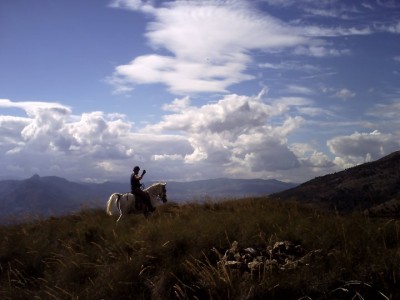
The dry river bed curves away into the distance, walls of the steep ravine closing in on either side, towering up to meet the cloudless intensity of blue arching above. My vision blurs. I can taste the warm air as it rushes into my nose and mouth, the smell of speed and animal sweat is strong.
No, this isn’t the opening to the next erotic E.L James novel, where the writer turns toward the exploration of bestiality in a natural setting, but an attempt to articulate a moment of pure and perfect exhilaration.
Galloping through the wild mountains of southern Spain earlier this summer was just that. It was happiness, it was throwing your head back and laughing at the sky — it was freedom.
It was also an experience that confirmed that those who have been under the impression riding holidays should be left to teenage girls are in need of a rethink.
Of course, there are plenty of examples to prove this statement incorrect. Pony trekking centers located in the English Midlands owned by people with names like Geraldina or Harriet should be actively avoided, for example. But, the point is, don’t be fooled into believing that if you are over 17 and don’t have posters of Pippa the magic Palomino on your wall that you are unsuitable for the pursuit of a vacation on horseback.
It’s time to saddle up and embrace your inner cowboy.
The Caballo Blanco
Just over 10 years ago, a nice lady called Sarah moved to Alpujarras in Adulucia, Spain. Having spent most of the money she had on packing up shop in the U.K. and buying the land, she didn’t have bucket loads of cash left over.
Yet slowly but surely, with not a small reliance on bags of concrete and gin, she built up her patch of isolated hilltop into an equestrian, albeit rustic, paradise, and she called it the Caballo Blanco or “White Horse.”
It is an incredible place. Home to over 20 horses as well as numerous cats, dogs, geese, chickens, rabbits and guinea pigs, Sarah has created a haven for animals and humans alike.

Riding Options at Caballo Blanco
You don’t have to have spent great swathes of your life holding a pair of reins to book a ride at the Caballo Blanco, just make sure you’re honest about your ability. Horses and routes provided cater to every standard, from absolute beginner to experienced.
The trails are hugely varied, with some winding through valleys and picturesque white mountain villages, and others traversing mountain plateaus. The views in spring and autumn are especially magnificent, with Morocco visible on the horizon across the Mediterranean Sea on a clear day.
If you feel like you want to throw yourself in at the deep end, then go for the full kit and caboodle in the form of a trail ride for between three to seven days. While you will almost certainly find yourself with a renewed respect for the John Wayne gait, this is an unforgettable experience.
If you are pressed for time or simply fancy something more a little more bite-sized, then a one or two hour trek is the perfect compromise. Or, if you really fancy putting yourself through your paces, then lessons in the school are also available.
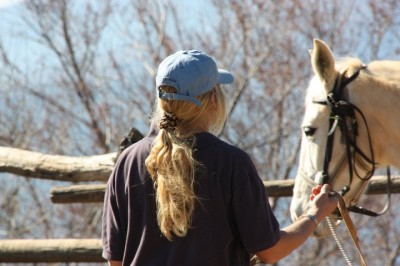
Use of natural techniques
You may already be familiar with the idea of a horse whisperer. You might even have seen the film where Kristin Scott Thomas gets it on with Robert Redford while he placates wild stallions. But Sarah is the real deal.
Most of the horses she works with are taken on as rescue cases; they may have been going for meat, or she might of heard of some supposedly wild mare said to be “unrideable” — a term invariably irresistible to her — yet, by using a process of natural techniques, she transforms them.
Reading their body language and having a thorough understanding of horse nature, she works in a way that establishes a relationship of trust and hierarchy, a far cry from the more traditional tweedy crop-wielding approach. It is a fascinating process and produces remarkable results, especially great to observe if you own horses yourself.
Sarah says she isn’t a wizard but I think she might be lying.
WWOOFING (Willing Workers On Organic Farms)
A little while ago, The Expeditioner posted an article that detailed everything you need to know about how to volunteer with WWOOFs. In a nutshell, it basically means volunteering in return for your food and lodging, something which is also an option at the Caballo Blanco.
This is not for the faint-hearted. The hours are long, the accommodation basic and the work is extremely physically taxing. You’ll also need to get used to straw finding its way into your nether regions for the duration of your stay and possibly for some weeks following.
Nevertheless, there is nothing quite like going to bed tired and aching with a full stomach feeling absolutely at peace with the world.
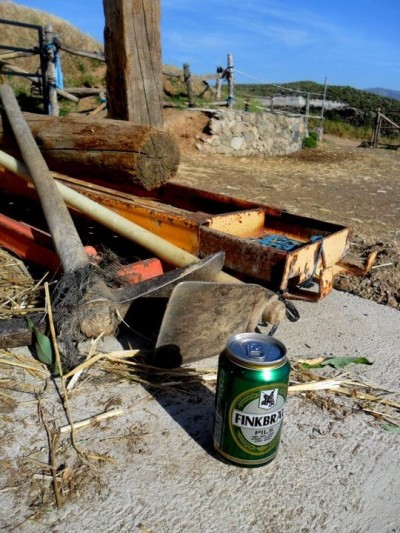
Working holiday
A working holiday is similar to WWOOFing but the great thing about opting for this itinerary is that you are guaranteed to ride at least once a day as you will pay for this in advance. You will be given plenty of opportunity to join in on the day rides and to have lessons. as well as being provided with two days off per week, as opposed to the one you receive as a WWOOFER.
For rates or to make a booking, go to www.FarAndRide.com/riding-holidays/spain/andalucia_trail/ or visit www.CaballoBlancoTrekking.com for more information.

About the Author
 A restless Brit with big dreams and limited cash flow, Hannah is a freelance journalist and student. She is currently being sponsored by the European Union to take a Masters in Journalism and International Politics at the University of Amsterdam/University of Santiago, Chile, and the Danish School of Journalism. You can keep track of her wanderings with TheTangerineRidiculousness.com or follow her on Twitter @Hannah__Bowman.
A restless Brit with big dreams and limited cash flow, Hannah is a freelance journalist and student. She is currently being sponsored by the European Union to take a Masters in Journalism and International Politics at the University of Amsterdam/University of Santiago, Chile, and the Danish School of Journalism. You can keep track of her wanderings with TheTangerineRidiculousness.com or follow her on Twitter @Hannah__Bowman.
The post Why A Holiday On Horseback Is Definitely Not Just For Kids appeared first on The Expeditioner Travel Site.
]]>The post How To Volunteer With WWOOFs appeared first on The Expeditioner Travel Site.
]]>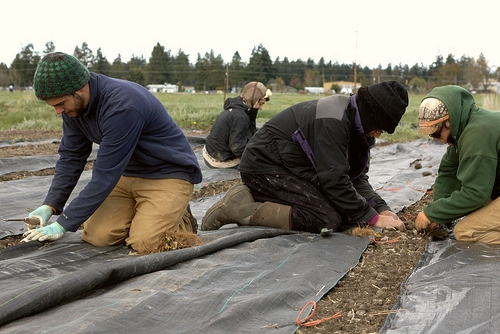
What are WWOOFs and How Do You Volunteer With WWOOFs?
Although volunteer travel has been booming for the last few years years, WWOOFing (World Wide Opportunities on Organic Farms), or as it is known in some locations, Willing Workers on Organic Farms, is one of the last great strongholds of inexpensive volunteer travel. It’s the real deal. It’s the alternative to spending thousands of dollars to build houses in Thailand or hundreds of dollars to nurse cuddly baby jungle animals.
WWOOF is a dynamic program available in almost every country around the world where you can spend your time working on an organic farm or project for room and board. The range of hosts and projects is exhaustive, and you’re sure to find something perfect for your travel plan. You can use the opportunity to learn about a particular type of organic farming, such as working on a vineyard or sheep station. If, conversely, you’re more interested in the culture and people of the country, you can seek out a host who sounds like a fascinating person who can offer you a peek in to the life of a local in Australia or Bolivia or France.
It’s Not About the Money
Your cost should never include any more than the membership price for the country/countries in which you plan to WWOOF and transportation to your host’s home/farm/commune/caravan. There are hosts out there who will agree to your stay, but then ask that you pay a small contribution toward the household expenses. If you’re working 6 or 7 hours a day and being provided with a bed and 3 squares, you’ve done more than enough to contribute. This sort of charge goes against the spirit of the program and should not be encouraged.
Choosing a host whose expectations are in line with yours is a key factor in determining whether you’ll find WWOOFing to be the rich and rewarding experience it should be, or a short stint in hell.
The Seven Types of WWOOF Hosts
1) Free Labor
Sadly enough, some WWOOF hosts are just out to save a buck. This is astronomically more likely to occur in developed countries with high labor costs where it is cheaper to fork over your room and board than to pay a hired laborer the minimum wage. Listings for this type of host are easily spotted by the requirement of long work days, little time off, limited interaction with the family and a lack of cultural activities. This is not the norm, but it is something to be aware of when choosing a host.
2) The Cult
Often you’ll find WWOOF listings for a group of people who have an established commune or independent community. Should you be in the market for an independent, sustainable community, look no further. This sort of host group generally has more strict rules and regulations than individual hosts. If you want to work a bit and party a lot, this type of host will probably not be your best fit.
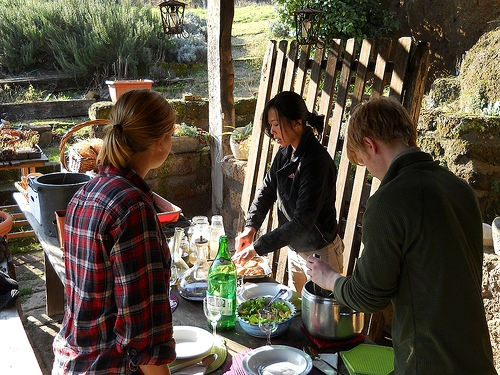
3) The Philanthropist
This particular host has you around because he or she is really excited about the organic movement and is passionate about cultural interaction with people from all over the globe. If you’re lucky to find a philanthropist host, you can expect to earn your keep but to also enjoy a significant amount of time exchanging ideas and knowledge with your host family. You’ll work hard, but you’ll have the chance to learn and play hard too.
4) The Student
Oftentimes hosts will list for WWOOFers who have certain skills or knowledge about anything from carpentry to permaculture. These hosts may be new to the field of organic production or they may just need a chicken house build. Either way, those of you who have specialized skills that may in any way apply to organic farming will have a much easier time finding a host. If you can teach them, the hosts will welcome you with open arms. Should you be knowledgeable in the field of organic farming, get out there and spread the love with these hosts.
5) The Hostel
Unfortunately, some hostels and B&B’s have caught on to WWOOF as a sort of “backpacker trap” to lure unsuspecting backpackers in to a paid room. They list for help in the hostel or maybe helping out with the kitchen garden. But once you contact this sort of host, they inevitably don’t have space for a WWOOFer but are more than willing to take you on as a paying guest. Again, this is not the norm but it is something I have come across several times while WWOOFing.
6) The Family
Many hosts listed in various WWOOF member countries are families, complete with children and pets. As such, this flavor of host is more likely to accommodate WWOOFers with children and may provide a more comfortable experience for a woman WWOOFing solo. These are generally good folks who could use a little help around the house and like to expose their children to other cultures. If you’re WWOOFing with this sort of host, take a spice blend or something from your home that you can use to make dinner one night.
7) The Linguist
Linguist hosts can be either of two types: an expat or a learner. Say you grew up in Northern California and you suddenly find yourself married to a Spaniard and living on a farm in Catalonia. This type of host may be a bit homesick and looking to speak his or her native language. Other hosts speak more languages than a polyglot, and are happy to accept WWOOFers who are proficient in the language they are learning at the moment. If you’re fluent in Japanese or Chinese or Arabic, this could be the place for you.
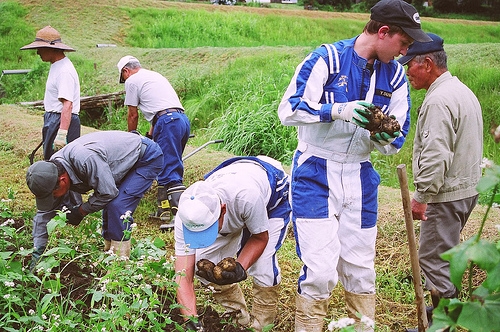
How to Score a WWOOF Host
First, you have to decide where you’re going. Countries with more developed WWOOF programs have country specific organizations you must join. The fee to join is nominal but if you’re planning to WWOOF in several countries who have national organizations in place, you will need to join each. Countries who do not have many hosts may be found under WWOOF independents. Once you’ve decided where you’re traveling, you’ve got to do the ground work.
You’re probably going to have to contact scores of WWOOF hosts to find one who will have space for you, so be prepared. This is especially true in high cost, popular travel destinations during the busy season. Read each host’s listing and expectations thoroughly and decide what you can deal with realistically. If you can’t sleep in a tent and use a compost toilet, don’t waste your or your potential host’s time.
If you seem like a good match, contact them (probably through email) and provide an introduction to yourself. These hosts receive numerous requests and you want yours to stand out. This is your cover letter and resume (or CV) to get the volunteer “job.” Talk a bit about why you want to work for them in particular and mention a thing or two from the listing. Be personal, be fun, and let your host know how hard you plan to work for them. Don’t be discouraged if you don’t hear back from every single host, and good luck!
[Red Dog Farm by Egan Snow/Flickr; Getting Ready for Lunch by Michael Cannon/Flickr; WWOOFing by strikeael/Flickr]

About the Author
 Carrie Thompson is a native of Little Rock, Arkansas, but now spends what little time she has on American soil in fancy Brooklyn marvelling at the variety shows and plethora of baby strollers. Carrie began her freelance career writing for BusinessTravelLogue and CarribbeanLogue. Her work may also be found at BootsnAll, IrelandLogue, AustrailiaBlog, WhyGo Austraila and The Expeditioner.
Carrie Thompson is a native of Little Rock, Arkansas, but now spends what little time she has on American soil in fancy Brooklyn marvelling at the variety shows and plethora of baby strollers. Carrie began her freelance career writing for BusinessTravelLogue and CarribbeanLogue. Her work may also be found at BootsnAll, IrelandLogue, AustrailiaBlog, WhyGo Austraila and The Expeditioner.
The post How To Volunteer With WWOOFs appeared first on The Expeditioner Travel Site.
]]>The post Something To Chew On This Thanksgiving appeared first on The Expeditioner Travel Site.
]]>
Thanksgiving is the perfect time to spend with your friends and family, listen to Uncle John’s childhood stories, eagerly eat roast turkey with cranberry sauce and agree to yet another slice of pumpkin pie without feeling bad about yourself. What’s not to love?
More interestingly perhaps, Thanksgiving is also the time to give thanks and be grateful for what you have. One usually thinks of health, a united family, great friends, a loving partner, a warm shelter, an interesting job or the turkey on the table. But who thinks about freedom?
When is the last Thanksgiving dinner you heard someone giving thanks for being free — master of their own destiny? We do not think of being grateful for being free because we just take it for granted. We should not. Because as shocking as it is, slavery still exists today in the form of human trafficking.
Human trafficking is the illegal trade of human being for the purpose of exploitation. In the world, more than 2.5 million people are victims of human trafficking at any given time and deprived from their most basic human rights.
Young women and girls are forced into prostitution and abject sexual exploitation. Men and women are forced to dangerous and tiring work into agriculture, factories or garbage dumps. Children are exploited to exhaustion as domestic workers and vulnerable to abuse.
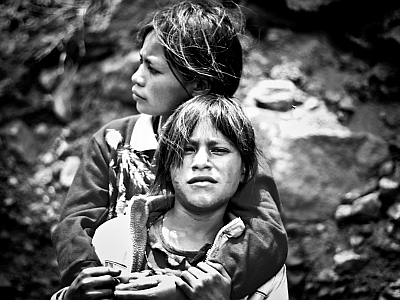 Most of the victims are women and children but anyone could be a victim. Why? Human trafficking is a lucrative business. The United Nations considers its market value at about 32 billion dollars. So there is a lot at stake. And, as we know, the end justifies the means. So to attract and retain their victims, traffickers use force, threats, abduction, fraud, deception and abuse of power. Most victims are coerced, a lot are lured with job offers just too good to be true. They are promised a dream life and get directly to hell instead as they are exploited day after day.
Most of the victims are women and children but anyone could be a victim. Why? Human trafficking is a lucrative business. The United Nations considers its market value at about 32 billion dollars. So there is a lot at stake. And, as we know, the end justifies the means. So to attract and retain their victims, traffickers use force, threats, abduction, fraud, deception and abuse of power. Most victims are coerced, a lot are lured with job offers just too good to be true. They are promised a dream life and get directly to hell instead as they are exploited day after day.
So this year, at lunch, be thankful for what you have and the fact that you are free. And think of all of those who are not. If you want to help, you can get in touch with the Institute for Trafficked, Exploited, and Missing Persons, and organization that works to prevent, interdict, rescue, recover, and rehabilitate victims of human trafficking.
They provide victims with safe houses when necessary, medical and psychological aid, social and legal assistance, as well as education, because education is key for vulnerable children to get out of poverty, know their rights and become less of a target for human traffickers.
Today, while your celebrate the holiday, remember to keep those less fortunate in mind, and to do what you can to help these victims to have something to be thankful for as well.
By Clara San Filippo, Operations Director, ITEMP

About ITEMP
ITEMP is a borderless anti-human trafficking program of The GOD’S CHILD Project/Nuestros Ahijados. ITEMP works to prevent, interdict, rescue, recover, and rehabilitate victims of human trafficking.
The post Something To Chew On This Thanksgiving appeared first on The Expeditioner Travel Site.
]]>The post 6 Ways To Volunteer Abroad From Home appeared first on The Expeditioner Travel Site.
]]>
Orphaned children in Africa, equality for women in India, sex-trafficking in Thailand; these are just some of the issues people wish they could get involved in helping to address. Unfortunately, not everyone has the ability to take off of work and fly to another country to volunteer. This, however, does not mean that the opportunity does not exist for everyone to volunteer abroad.
Many nonprofit organizations now offer opportunities for people living all over the world to volunteer online and in their hometowns to help causes in other countries. These volunteers have the ability to make just as strong a contribution as someone working directly in the field. Moreover, these online opportunities give volunteers a chance to gain a deeper understanding of international issues as well as foreign cultures, just as they would if they were in the country itself.
Here are six ways you can volunteer to help from your own home.
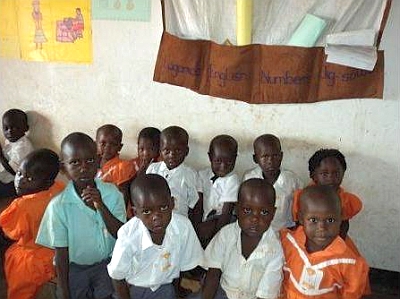 1) Aid The Nations, Uganda
1) Aid The Nations, Uganda
Aid the Nations is a nonprofit organization that is dedicated to supplying orphans and former child soldiers in Uganda with the hope and resources for a strong and positive future. A 23-year-long gruesome civil war has left the area devastated, and Aid the Nations works hard to repair and rebuild the nation.
One way that you can become involved with this organization from home is to become an ambassador or online intern. By doing this you become directly involved in projects and also have the opportunity to lead them. If you have a special area of interest — for example, marketing, grant writing, social media or video creation — Aid the Nations will tailor projects and tasks so that you can help out while gaining skills in your field.
Aid the Nations also puts a large emphasis on creating awareness as well as on fundraising. On their website they provide educational materials such as malaria brochures for volunteers to use to spread the word of the situation in Uganda. Moreover, they suggest fundraising through carwashes, sporting competitions, bake sales, benefit dinners and concerts. And don’t worry if you have never planned an event — Aid the Nations will help you out to ensure success.
For more information on volunteering online with Aid the Nations, visit AidTheNations.org and click on the “Get Involved” tab.
2) DAAN Foundation, India
DAAN stands for Development Action Awareness Nationwide, and the nonprofit’s mission is “to promote right education and overall capacity building of rural youth and women. To develop their understanding of issues related to health, education, gender-equality, and socio-economic development through awareness generation and capacity building initiatives.”
The major areas of focus include microfinance, microenterprise and livelihoods, human rights, environment, sustainable agriculture, women empowerment, education, health and organizational development.
When becoming an online volunteer, DAAN helps to match the tasks and projects you will be involved in to the skills and interests you hold. For example, if you are a communication buff, some duties could include writing for the organization’s blog, performing online research or helping with online marketing and outreach.
Other possibilities include providing volunteers with mentoring or technical assistance, writing grants and sponsorship proposals, strategic and operational planning, feature and article writing, and even working with budgets.
For more information on becoming an online volunteer for DAAN, visit DaanFoundation.org/online-volunteering.html.
 3) ADRA, Global
3) ADRA, Global
ADRA (Adventist Development and Relief Agency International) works in many different developing areas. Their mission, put simply, is to improve the lives of men, women and children by working to eliminate deprivation, social injustice and needs around the world. Some particular ways that ADRA fulfills their mission is promoting health, supporting families, establishing livelihoods and providing resources.
ADRA offers many opportunities to volunteer online or from home. One way is to take a look at their “Do Something Kit,” which you can download here. When looking through the Do Something Kit, you will find background information on issues affecting people around the world and how ADRA is working to address them. Along with information comes ideas on how you can help, such as fundraising activities and writing to government officials. Everything you need to plan any fundraising efforts is completely laid out for you.
Another way to volunteer is to hold an event and invite a speaker to come talk, or have them speak at an existing event, such as a church service or convention. ADRA can provide the speaker for you, and once you let them know the audience, necessary language, region and topic you want discussed, they will help to pair you with the best speaker for your event needs. You can request a speaker using the form on this page.
For more information on getting involved with ADRA, visit their website at Adra.org.
4) RAIN For The Sahel And Sahara, West Africa
The mission of this nonprofit is to improve the lives of the people in West Africa through education, income-producing activities, agriculture and water security. For those people who live in New England, this nonprofit is based in New Hampshire. A Meetup.com group for the organization meets about once a month in social settings in various towns in New Hampshire to brainstorm fun activities to help raise money for RAIN’s “Girls Scholarship and Mentoring Program,” which helps girls in Niger gain educational resources.
If you are not from the New Hampshire area, there are still ways to get involved with RAIN’s mission. RAIN is looking for people from different cities and states to start Meetup groups in their own areas that can mirror what the New Hampshire group does. You can start one up at Meetup.com.
Furthermore, RAIN has their projects listed on multiple giving sites such as GlobalGiving, Nat Geo Action Atlas and Jolkona, to name a few. Because these are internet-based initiatives, getting the word out about them is vital to the success of the organization’s mission, so those interested in social media, marketing and communication could use their skills in this area. Moreover, most of these websites have options to start a fundraiser and get others on board. Event planners, those with public relations skills and creative types could really play a big part in helping create successful fundraisers for RAIN.
For more information on online volunteering with RAIN for the Sahel and Sahara visit Rain4Sahara.org.
5) CARE, Global
CARE is a leading human rights organization whose mission is to fight poverty worldwide. Their main focus is helping poor women because, when given the proper resources, CARE believes women have the ability to help entire communities. Some of their efforts include preventing the spread of disease, expanding economic opportunities, improving education and protecting natural resources.
There are myriad of ways that online and home-based volunteers can get involved with CARE. Before doing anything, it is best to create a profile on their website, as this can help you interact with other volunteers for feedback and collaboration, as well as for getting information out. You can do that here.
CARE gives volunteers various ways to help spread the word and get their message out. Some of these include writing on their blog, talking to legislators, sending e-cards, utilizing social media and joining their action network, which allows volunteers to take immediate action online. Click here for more information.
Another way to get involved with CARE is to hold or attend a local event. On their website they have a database where you can search events as well as add events. Some event themes include bike rides, fundraisers and conferences. CARE will even help you plan and host the events. For more information on CARE events, click here.
CARE also has a section on their website that encourages volunteers to get involved with CARE’s mission in their community. By visiting this page, you can click on your home state to find our how you can help. Through community projects and programs, you can help end global poverty right from your hometown.
For more information on how to get involved with CARE, visit their website at Care.org.
6) United Nations Volunteers Online, Global
This is a U.N. database of various organizations and projects from a myriad of countries that need online volunteers. Volunteers contribute the skills they have online in order to help organizations address challenges in development while organizations collaborate with the online volunteers to strengthen the impact of their volunteer efforts.
Through their website, you can narrow your search for the online volunteer experience that you want by choosing particular regions, tasks, development topics and hours per week you would like to volunteer. For example, you could search “consulting” and “governance and human rights” in “Eastern Europe” for “6-10 hours per week.”
Visit Onlinevolunteering.org/en/vol/ to search the database and start getting involved in a project.

About the Author
 Jessica, a New York native, is a world traveler who is always looking for a new adventure. She stays active through dance, hiking and cycling, and loves nothing more than her backpack. Follow her travels around the world and the Big Apple on her blog at Jessieonajourney.com.
Jessica, a New York native, is a world traveler who is always looking for a new adventure. She stays active through dance, hiking and cycling, and loves nothing more than her backpack. Follow her travels around the world and the Big Apple on her blog at Jessieonajourney.com.
The post 6 Ways To Volunteer Abroad From Home appeared first on The Expeditioner Travel Site.
]]>The post Be A Traveler Who Saves A Life appeared first on The Expeditioner Travel Site.
]]>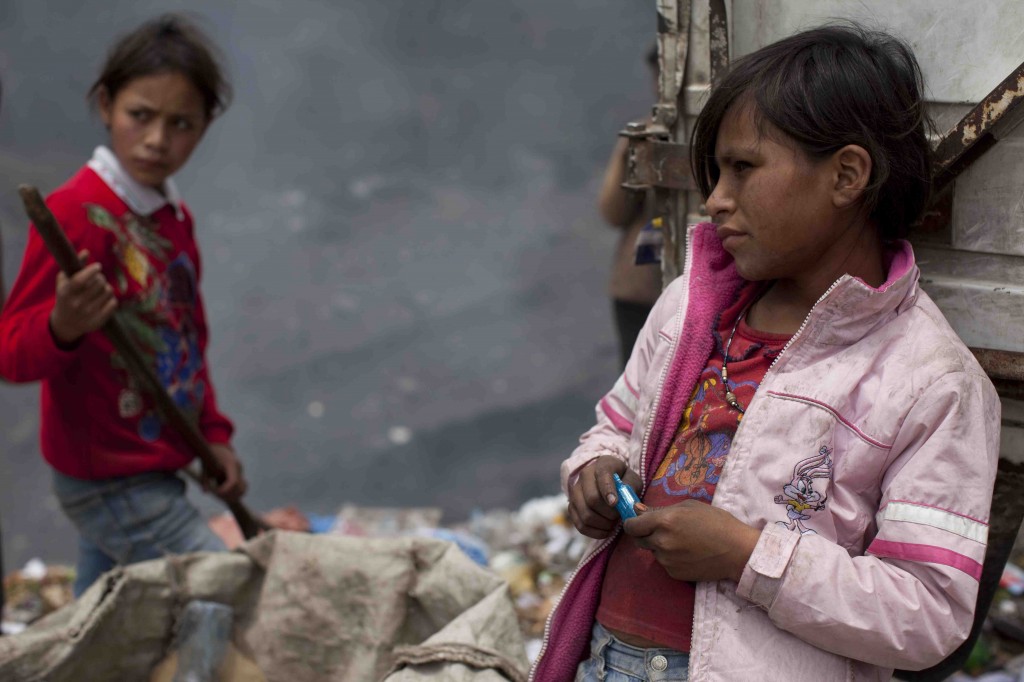
Be part of our international campaign today to “Break the Bitter Chains of Slavery”!
Dear Expeditioner Readers,
As travelers I think all of us have stared into the face of unfortunate souls living desperate lives in faraway lands. We’ve seen beggars reach a withered hand towards us longingly with dishes filled with coins. We have had poor boys and girls plead with us for pocket change. It’s never easy to experience this. Each time it seems to tear a new hole in our heart.
By being a tourist in another country, we automatically assume a position of privilege. I think all of us feel the twists of compassion as we desire to help those poor unfortunate souls we come in contact with. Some of us learned from college professors that by giving to beggars we solve nothing. Giving to a beggar does not get to the underlying causes, it merely treats the symptoms, they told us.
Today, June 15th, is your opportunity to make a real lasting change in someone’s life. Three years ago I started working for the international development organization Nuestros Ahijados. Founded by human rights activist Patrick Atkinson, this organization leads the charge in social development by offering sustainable solutions to people struggle to survive.
ITEMP (The Institute for Trafficked Exploited and Missing Persons) is one of its 13 programs in Guatemala that works against modern day slavery, or Human Trafficking. ITEMP works to rescue and rehabilitate victims of modern day slavery. The work is not always easy.
Over the last three years I have met too many children living in garbage dumps. I have seen the dead look in the eyes of little girls forced to work in conditions no human being, much less a child should be allowed to work in, and I have had my heart broken again and again from being witness to such suffering.
What prevents me from drowning in all this is that I have also seen this program pick up these children from lives of suffering and seen their lives saved. I’ve seen dark empty stares burst into tears of joy and laughter. That’s what this program is about, giving people their lives back.
Today, June 15th, Global Giving is matching all online donations up to $1,000 per donor at 30 percent! This means that if you donate $10, Global Giving will donate an additional $3 to ITEMP. In addition to the 30% match, Global Giving is offering $1,000 bonuses to the project that raises the most funds and to the project that receives the most individual donations! So donations of any size can and will make a huge impact.
Please consider donating what you can today. The stakes are so high here. The stakes have names like Maria and Jose, Jenny and David, Fatima and Fernando. Your donation really will help save their lives. You can also help us in other ways by reposting this article on Facebook and Twitter, you can email your family and friends and make the same plea to them that I am making to you: Help them. Help the poor boys and girls who have had their lives taken away from them. Help them today!
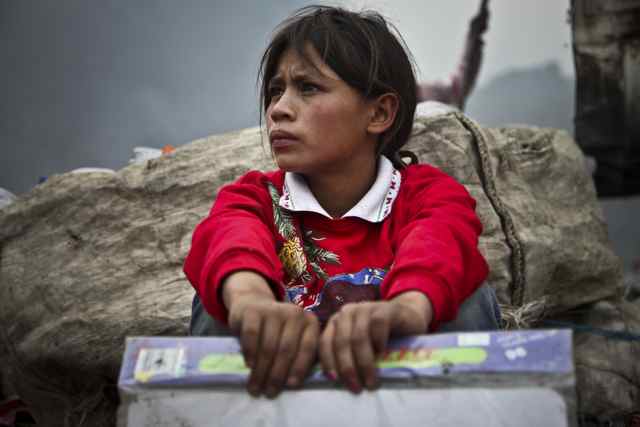


Click here to be directed to ITEMP’s Global Giving Page
About the Author
 Luke Maguire Armstrong lives in Guatemala directing the humanitarian aid organization, Nuestros Ahijados. His book of poetry, iPoems for the Dolphins to Click Home About (available for sale on Amazon.com) is especially enjoyed by people who “don’t read poetry.” (@lukespartacus)
Luke Maguire Armstrong lives in Guatemala directing the humanitarian aid organization, Nuestros Ahijados. His book of poetry, iPoems for the Dolphins to Click Home About (available for sale on Amazon.com) is especially enjoyed by people who “don’t read poetry.” (@lukespartacus)
The post Be A Traveler Who Saves A Life appeared first on The Expeditioner Travel Site.
]]>The post 7 Things To Consider Before Volunteering Abroad appeared first on The Expeditioner Travel Site.
]]>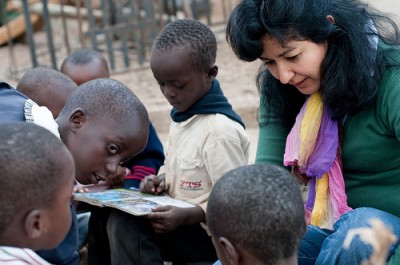
There is that special feeling associated with knowing you are a part of something that directly increases the overall good in the world, and this is certainly a crucial reason people volunteer in any capacity. Volunteering abroad, however, is an entirely different cup of soup. Screw the free T-shirt from the benefit walk at the local high school track, you’re going to tackle poverty in the Philippines, build homes — not just houses — in the Amazon, and end the AIDS epidemic entirely. After you do all that, you’ll need to start planning a second trip.
Really, I’m kidding. I’m only trying to highlight the idealistic naivety that gets people in trouble. Although tackling problems of the world is a noble one — one we highly encourage — there is a reality surrounding volun-travel that would be irresponsible not to share.
Recently at vagabondish.com, they shared a top ten list called “Things I Wish I’d Known Before Volunteering Abroad”. Often, articles like this seem to expose more of a realistic side of the endeavor, and keep that idealist at bay — at least a little bit.
The article is a good place to start for anxious volunteers. The author touches on numerous aspects of the volunteer experience, offering suggested programs, existential and experiential advice, and follow-up tips that should be expected. However, I was struck with contemplation at some of the more poignant quotes throughout the piece. Below, in bold, are some of the thoughts and experiences that should be considered when thinking about volunteering abroad.
“Of course, don’t ever compromise your safety.” This is in reference to the numerous programs that are available throughout the world. Remember, not every placement or program is for everyone — and do your research.
“Don’t lose track of the expiration date of your tourist visa.” Getting a volunteer position doesn’t necessarily mean you have a job on completion. There are certainly ways to foster this: connecting with local businesses and organizations during your experience. Remember, volunteer travel isn’t always a one-way street.
“Once you see emaciated children sleeping on cars at night, that you realize what true poverty and famine really mean.” Culture shock and truths that exist around the world aren’t always what you think or expect. There are many useful online resources that address topics as culture shock and foreign cultures. Remember, there are chances your situation is far more extreme than you could ever have imagined.
“The ravages of AIDS aren’t going to end because I helped out for three weeks.” This is a fact that many need to accept — it’s terribly frustrating trying to climb a mountain of quicksand. Remember, you have power and an opportunity to help. If you reach a single person, maybe even a few, you are a success.
“You are just another “white tourist” visiting a poor country.” Unfortunately, the organization is typically in an everlasting cycle of people just like you. In fact, the people or cause is used to experiencing a parade of tourists helping the cause. Don’t get frustrated when you feel you aren’t given the responsibility you expected or the respect you expected. Remember, every task is a piece of the puzzle; keep the larger picture in mind.
Getting to know oneself through exploring a foreign culture is part of the process. It can be very personal and emotional. Experiencing a culture and its extremes can make you consider things about yourself that you would never have imagined.
Remember . . . Despite everything, [you] will miss it afterwards.
Although not every volunteer program is the right fit for you, nor you for it; so here are some great resources to check out:
WWOOF (World Wide Opportunities on Organic Farms): Linking volunteers with organic farmers to provide more sustainable ways of living.
Matador Change: Featuring regular articles on volunteering abroad.
Transitions Abroad: Traveling, living, studying, teaching, and volunteering opportunities, resources, and reports from all over the world. The go-to site.
Go! Overseas: Connecting people with volunteer, study, and teaching opportunities with articles and forums to help guide the way.
[Photo of Volunteer Sandra by linz_ellinas/Flickr]
By Jon Wick

About the Author
 Jon lives in Butte, Montana, spending most of his time on skis or bikes; sometimes both. He began travel writing while teaching in Korea and is currently pursuing his Master’s Degree in Technical Communication at Montana Tech. Jon has begun writing his first book, The Story of Will, whose movie rights are still (very) available. Catch more of Jon at TheJonWickproject.wordpress.com. (@ExpedJon)
Jon lives in Butte, Montana, spending most of his time on skis or bikes; sometimes both. He began travel writing while teaching in Korea and is currently pursuing his Master’s Degree in Technical Communication at Montana Tech. Jon has begun writing his first book, The Story of Will, whose movie rights are still (very) available. Catch more of Jon at TheJonWickproject.wordpress.com. (@ExpedJon)
The post 7 Things To Consider Before Volunteering Abroad appeared first on The Expeditioner Travel Site.
]]>The post Thinking of Joining The Peace Corps? Think Again appeared first on The Expeditioner Travel Site.
]]>
Many die-hard travelers, at one time or another, have dreamed about volunteering in a small village in some remote region of the planet. The prospects for such a journey could seem extremely promising for young, motivated spirits. Heck, what could be better than living abroad for an extended period of time, while at the same time changing the world, and unlocking endless possibilities for their future? The list of reasons why such a trip offers valuable experiences could surely keep one listening for as long as it would take to reach a rural community in Mali, but as sensible travelers, we should ask ourselves: would we be in it for the right reasons?
In a recent article, BootsnAll lists five reasons why not to join the Peace Corps, asking people to examine their motives before committing to the intense program. Avid travelers who consider joining often mistake the volunteer job for a chance to travel in and around the region they are stationed in, when in fact the opportunity for exploration is minimal. The article points out: “To be effective, volunteers must integrate into their communities, adapt to new cultures and become familiar with customs and traditions. This means that when the job ends, the hard work of getting to know a place and its people really begins. Only volunteers who stay at sites and dedicate time and effort to cultivating relationships actually succeed.” And if there are opportunities to travel, getting around can be harrowing, requiring days of trekking and bunking in third-world conditions just to reach one destination.
We’ve all considered partaking in something we’ve had questionable interest in just to enhance our credentials or to mention the experience on some fancy interview. The fact of the matter is, yes, joining the Peace Corps, could help you brush up on a language you took in college, (the chances of being placed somewhere without already being semi-fluent is slim to none) and would look impressive to most employers, but can you face the reality of being immersed for two years in a job that will demand every ounce of your soul? If you can honestly say that you are cut out to serve others on a daily basis while enduring harsh living conditions, then go for it!
Traveling somewhere and volunteering in a place offers completely different experiences. Most travelers create their own itineraries and choose the level of comfort they wish to stay in. If there are aspects of a destination that are unappealing or boring, you have the option to walk away and find something better to do. This is not the case with volunteering. Instead, it is a commitment for those who understand that they have been called to do a job where they will have a small but powerful affect on the lives they touch. As the article notes, “It may be impossible to change the world, but living in a tiny corner of it is a reminder that it is possible to change individuals, circumstances and ourselves.”
[Photo by PolandMFA/Flickr]
By Maria Russo

About the Author
 Maria Russo is a freelance writer who loves natural wonders, good eats, ethical travel, and boutique hotels. Her work has appeared on the Huffington Post, USA Today.com, People.com and A Luxury Travel Blog, among others.
Maria Russo is a freelance writer who loves natural wonders, good eats, ethical travel, and boutique hotels. Her work has appeared on the Huffington Post, USA Today.com, People.com and A Luxury Travel Blog, among others.
When Maria is not writing for her all-time favorite site (that would be The Expeditioner), she spends her time blogging about foreign jaunts and delectable food experiences for her site: Memoirs of a Travel & Food Addict. She is also up to no good on Twitter (@traveladdictgrl, @expedmaria).
The post Thinking of Joining The Peace Corps? Think Again appeared first on The Expeditioner Travel Site.
]]>The post A Community Comes Together In Mexico appeared first on The Expeditioner Travel Site.
]]>
by Katherine Fisher
I showed up around 10 a.m. and the buzz was already going, loudly. When I arrived, the cement truck was already there, ready to unload as much concrete as we needed. The kids were amazed at the sight of this huge, monstrous truck, and they were running around with unbridled excitement and more smiles than you can imagine. The whole community, over 250 volunteers in all, were here, joined together to create a safe, eco-friendly playground for kids.
The whole endeavor was being spearheaded by Nicole Swedlow, Founder of entreAmigos in San Pancho, who had teamed up with Molly Fisher (my Sister), myself and the of crew of our organization, Destination:PEACE, for today’s project. Our organization is a voluntourism organization in Mexico that allows travelers to combine volunteering with the experience of exploring the culture of the country (and a little yoga and authentic Mexican food mixed in on the side).
Volunteers had gathered for the day, using recycled and reused materials to build a safe space for kids to play. Not only were the kids making a new playground, but they were also learning about the basics of recycling. I walked around in amazement at the sight of the entire community coming together. Everyone was wearing the bright, green-colored T-shirts that had been given out, and I couldn’t help but notice the multitude of smiling faces and dirty hands around me, not to mention the camaraderie by everyone involved. I felt like I was in a movie. The wheelbarrows were in motion and the buzz continued.
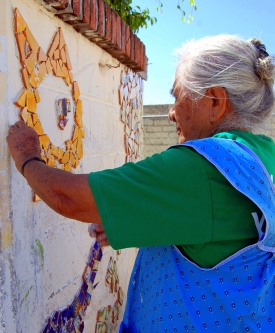
Everyone was helping, including: Juan, Junior, Elli, Ana, Gaby, John, Elliott, Lalo, Molly, Gerardo, Miguel, Carlos, Christian, Nikhol, Nicole, Nova, Chito, Dahlia and many more; an unforgettable sight to see so many familiar faces coming together for a common goal. I couldn’t help but pick up my camera and begin taking pictures.
I eventually put my camera down and dove into the dirty work myself. For some reason I was drawn to the tires that were being used to create stools for the outdoor tables. To construct the stools we had to hammer in water line pipes to the tops of the tires — this is where one sits — then we had to dig the holes where we would anchor the tires. We measured things, we rolled the tires, we broke nails (at least I did), and the end result, after many long hours in the sun, was euphoric. A safe place for the kids to eat lunch, play games and study.
During this whole time there were kids and adults painting huge murals, the color and beauty of which were truly a sight to see. I was also intrigued by the plastic bottle project where the volunteers were taking bottles, cutting them up and creating fan-like shapes to stick into the fence. Of course the plastic bottles are beautifully painted so they create a flower essence — a great home art project. Also, all around, friends were painting benches, chairs and tables.
Then, when it was time for lunch, without asking, one of the local neighbors near the school opened her house up and invited in the entire team. While we had been working, the neighbor had prepared delicious, fresh ceviche — a specialty in this part of the country — along with fresh jimaica juice to wash it all down with.
Despite having done countless of similar projects with my group, I kept thinking throughout the day how this particular experience was one of my favorites. I may not have another day quite as memorable as this one, but that was fine with me, this was just the beginning of what were sure to be many more wonderful experiences.

Founded in 2005, PEACE Mexico, works hand-in-hand with communities in Mexico to provide holistic education combined with community action programs that enable people to improve their quality of life, as well as, their financial stability. English classes, after-school programs, recycling initiatives, and a free mobile spay/neuter clinic are among the various projects.
Destination:PEACE was born out of an idea by sisters Molly Mendez Fisher and Katherine Fisher to couple volunteer opportunities with the amazing landscape that the Bay of Banderas offers as a vacation destination. During a Destination:PEACE Volunteer Vacation, guests will experience another culture while making a difference in the lives of others: children, women, families, animals and the environment.
A volunteer will help raise awareness and contribute to the overall love, community and hope to the people and animals affiliated non-profit organizations in Mexico. Destination:PEACE gives back a portion of their proceeds to the non-profit in order to further their mission.
Katherine has combined her background in business and sales with her passion for Yoga and has committed herself full-time to building, organizing and promoting Destination:PEACE. She hopes to one day see Destination:PEACE grow from infancy to maturity and become self-sustainable.
For more information please visit www.destinationpeacemexico.com
The post A Community Comes Together In Mexico appeared first on The Expeditioner Travel Site.
]]>The post Voluntourism: Who’s Doing What, Where, And How appeared first on The Expeditioner Travel Site.
]]>
ChaCha has this handy graphic about travel’s newest trend, voluntourism, showing who’s doing it, where they’re going, and what they’re doing. Turns out the top three spots for the million or so Americans in 2009 who partook in international voluntravel, Peru was the most popular (16%), followed by Costa Rica (14%) and South Africa (13%). (Interesting, seems the lower-temperature regions of the world are in less need of help?)
Men are also way behind in their altruism, with women beating them nearly 2 to 1. And, as the graphic’s note points out, the number of people taking such trips increased by 46% (from 4.7 million people to 6.2 million people) from 2007 to 2008, a good sign for this new travel trend. Now if only more organizations were in need of the skills of an experienced blogger to lend them a hand for a few weeks. . .
The post Voluntourism: Who’s Doing What, Where, And How appeared first on The Expeditioner Travel Site.
]]>The post With A Little HELP From Your Friends In India appeared first on The Expeditioner Travel Site.
]]>
The merits of travel to poorer areas of the world are constantly being debated. Some believe it helps communities, while others believe it helps to destroy them. However, as many travelers already know, there are ways that one can travel while conserving, and preserving, the area.
The goal of Help Tourism, in India, is as the name says: Heritage, Environment, Livelihood, People. Its purpose is to encourage travel as “a tool for conservation and sustainable development.”
When reading this recent article on Gonomad.com about Help Tourism, I felt what the experience of being a part of something different must be like. Dr. Swati Dasgupta joined the group to aid those still affected by Cyclone Aila’s aftermath, a storm that hit the Indian Ocean in May 2009. “The people of the delta are simple, stoical, bereft of the pettiness of urbanization. The inhospitable land has endowed them with values and a sense of hospitality that moves the outsider.”
I can’t help but marvel at humanity’s grace. It’s as though by extending a hand, out of courtesy and respect, that fear and hostility are not even calculated into the equation. My friends call me optimistic when it comes to my outlook on humanity, but how could we not believe in the good when an example is right there on a page?
Nevertheless, amidst the “wild beauty” of West Bengal, there is a dark side to watch out for. “The core forest area is forbidden territory to all but the forest department. At times misfortune strikes a fishing boat that has strayed into illegal waters. The stealthy tiger often climbs on such a boat and drags off a sleeping victim.”
In other words, the people may be lovely, but the wildlife is hungry.
That being said, conserva-tourism is obviously not for those who need the creatures of comfort. It is for those who seek a little spice and adventure, and even a few heart palpitations. I don’t think it’s easy to say which experience is better or worse, they are just different.
By Brit Weaver

About the Author

Toronto born and based, Brit is an avid leisure cyclist, coffee drinker and under-a-tree park-ist. She often finds herself meandering foreign cities looking for street eats to nibble, trees to climb, a patch of grass to sit on, or a small bookstore to sift through. You can find her musing life on her personal blog, TheBubblesAreDead.wordpress.com.
The post With A Little HELP From Your Friends In India appeared first on The Expeditioner Travel Site.
]]>The post A Bowl Of Fruit appeared first on The Expeditioner Travel Site.
]]>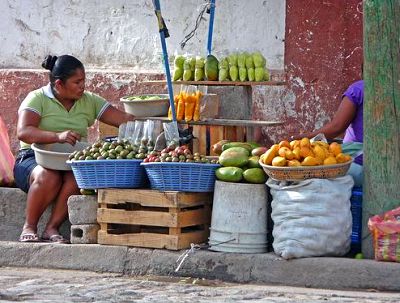
By Tyrel Nelson
It was mid-January, but no snow was on the ground — an odd sight for Minnesotans. The 17 of us were actually in the verdant highlands of Panajachel, Sololá, Guatemala. Teammates on a Global Village trip, we were offering our time and sweat on behalf of Twin Cities Habitat for Humanity (based in Minneapolis). And I had grown to admire the volunteers who had been at my side the past seven days. Coming from all ages and walks of life, these compassionate individuals left their loved ones, missed work, used vacation time, and spent their own money to help a pair of families in need of decent, affordable housing. Not only was I proud to have met such good-hearted people, I was honored to stand before them.
The hot afternoon sun was blinding, but that wasn’t the reason I was wearing shades. I was hiding behind them. I had been in this situation a couple times before. It was the end of the week, and I was to speak; always an emotional time. I knew what to expect, so I focused on my teammates. Their smiles mirrored mine. However, when I glanced at the Guatemalans, who had also been working alongside me, the tears started to flow. I couldn’t go on.
“Un momentito, por favor,” I said with my head down. A moment please.
It was hard saying goodbye. Staring at my feet, I tried to compose myself. I reflected upon the last handful of days. These people had nothing, but gave their everything. They chiseled holes in cinder blocks, mixed cement, and carried heavy buckets of sand with us. But they also, sang, danced, and laughed with us. They put forth their best effort and, most importantly, their friendship. By week’s end, our newly-formed Minnesota family believed it had become part of a Guatemalan one, too.
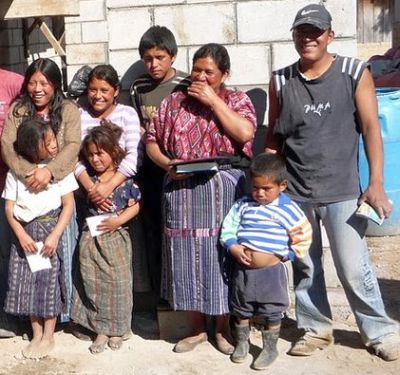 Eventually, I gathered myself. I slowly lifted my head. I faced Diego, Estela, Eva Tomasa, Isaías and Jaime (the masons), Manuel, María, Patricia, and Rudy, and thanked them for the kindness they had shown us. I also expressed my hopes to return someday to visit them in their new house. They circled me when I was done. We all exchanged handshakes, hugs, as well as kisses on the cheek.
Eventually, I gathered myself. I slowly lifted my head. I faced Diego, Estela, Eva Tomasa, Isaías and Jaime (the masons), Manuel, María, Patricia, and Rudy, and thanked them for the kindness they had shown us. I also expressed my hopes to return someday to visit them in their new house. They circled me when I was done. We all exchanged handshakes, hugs, as well as kisses on the cheek.
On my way back to the van, I noticed something in the corner of my eye. Rudy was waving me over to the decrepit, smoky shack his family had been living in for so many years. He said his mother wanted to see me. Following his open hand, I squinted into the far corner of the house. I could barely see María’s silhouette in front of a wooden table. It appeared as if she was preparing something. Suddenly, she turned around and began walking toward me; her stout figure more visible with every step. When she finally emerged from the darkness, she was sporting the ear-to-ear grin I had grown accustomed to during the week. In her hands was a bowl of fruit. She handed it to me.
“Gracias por todo,” she said with a teary smile. Thanks for everything.
I was too choked up to talk. The only thing I could do was give her a huge embrace before I sadly exited her home.
Constantly replaying this moment in my mind, I wept on the way back to the hotel. I gazed at the bowl of fruit, truly struck by María’s generosity.
Turned out this assortment of bananas, strawberries, and oranges was the reason she had disappeared earlier in the day. Putting her hectic household duties aside, she made a special trip to buy this gift for my team — even though she hardly had the money, if any, to spare. A bowl of fruit may not have seemed like much for some people, but it meant the world to me.
Having been on a few Habitat International trips, I’ve noticed a recurring result. Teams go with the purpose of building houses, but construction isn’t all that happens. Invaluable learning experiences take place and intercultural friendships are formed. Everlasting memories are created as well. And even the smallest gestures, like an offering of fruit, can leave the deepest impressions.
* For more information on how to join a Habitat for Humanity International Global Village trip visit their website here.

Tyrel Nelson has spent much of the past decade exploring Latin America. Documenting his experiences along the way, he published his first book, “Stories from Ecuador: A Collection by Tyrel Nelson,” in 2009. He currently works in St. Paul, Minnesota, coordinating tutors and mentors for a public secondary school.
“Stories from Ecuador: A Collection by Tyrel Nelson” can be found on Amazon or Barnes & Noble:
The post A Bowl Of Fruit appeared first on The Expeditioner Travel Site.
]]>The post The Day I Spent Teaching In The Philippines (Without Any Warning) appeared first on The Expeditioner Travel Site.
]]>
What does one do when thrust into the unexpected situation of teaching a class of 57 children in the capital of the Philippines? Why, sing, of course.
A trip to the Philippines is always an education, but this time I’d planned on taking things easy. Rather than sail out into the wilderness and explore some of the 7,000-plus islands that make up the archipelago, the idea was simply to stay put in the capital, visit some friends, grab a few bargains in the vast malls and generally avoid the unusually harsh European winter.
It isn’t long, however, before I’m tempted out of my 35th-floor hideaway in the grandly named Global City district of Manila (once the site of a vast American military base called Fort Bonifacio, today it is an upmarket assemblage of corporate skyscrapers, plush apartments and overpriced restaurants) and into the altogether wilder environs of neighboring Taguig.
I hand the taxi driver a piece of paper with the scrawled address of the Captain Jose Cardones Elementary School — where I’m meeting a friend — and he assures me he knows exactly where to go. Soon he’s stopping every few minutes, thrusting the note at every other pedestrian, “just to check, sir.” Meanwhile I sit helplessly in the back, watching the meter tick up and wondering why I still fall for this trick after so many years.
 Mind you, I can understand his confusion. Taguig is a maze of ramshackle markets, makeshift eateries and tiny sari-sari stores, where men in string vests and baseball caps reach between rusting iron bars to make micro-purchases of Nescafe sachets and rough local cigarettes (sold singly, rarely by the packet). A welcome, cool breeze is doing its best to disperse the ever-present fog of pollution, and it seems like the entire city is outside, haggling for vegetables, chewing on chicken kebabs, playing tongits to win a few pesos, or somehow sleeping through the din of traffic and the warbling efforts of unselfconscious videoke singers. The shiny saloons of Bonifacio are gone, outmaneuvered by overloaded tricycle sidecars buzzing down the narrow lanes, causing scrawny dogs to leap for their lives.
Mind you, I can understand his confusion. Taguig is a maze of ramshackle markets, makeshift eateries and tiny sari-sari stores, where men in string vests and baseball caps reach between rusting iron bars to make micro-purchases of Nescafe sachets and rough local cigarettes (sold singly, rarely by the packet). A welcome, cool breeze is doing its best to disperse the ever-present fog of pollution, and it seems like the entire city is outside, haggling for vegetables, chewing on chicken kebabs, playing tongits to win a few pesos, or somehow sleeping through the din of traffic and the warbling efforts of unselfconscious videoke singers. The shiny saloons of Bonifacio are gone, outmaneuvered by overloaded tricycle sidecars buzzing down the narrow lanes, causing scrawny dogs to leap for their lives.
As we pull up in a cloud of dust, I briefly wonder whether the taxi driver will ever find his way out again. Then every head in the street is turning magnetically towards me; very few foreigners have cause to come here. Fedila, an old friend who happens to be an English teacher at the school, is waiting to greet me at the gates. Her daughter is currently in a music class; before we go to dinner, would I care to sit in?
As we make our way along the shiny stone corridors, passing a compact clinic, computer room and library, I hear the first excited cries of “Americano!” from kids who have spotted a visitor through the slatted glass windows of their classrooms. There would be little sense in pointing out that I’m from England, actually (numerous previous trips to the Philippines have taught me that in this country, if you’re white, you’re an Americano — end of story)
Soon we reach the music room where Mrs. Chonchita Savedra is teaching a new song to a class of first-graders. There’s a quick exchange in tagalog — a language spoken by about 22 million Filipinos — of which I understand little, but from the frequent glances and nods in my direction, I sense something is being agreed. Then Fedila disappears, thanking me somewhat cryptically for “helping out.” What, exactly, am I helping out with, I wondered?
“This is Carl, he’s my new boyfriend,” says Chonchita, getting a big laugh from the class, whose lesson has just taken a very unexpected turn. “We’re very lucky to have him with us today. He’s going to teach you all some English songs. Carl, over to you.” And with that she scoops up a stack of exercises books and marches off to catch up on some grading, leaving me with a lot of eager five-year-olds and no idea what to say to them.
It’s hard to say what comes as the bigger shock: the fact of finding myself in front of a class for the first time in 20 years (I once taught English, rather ineptly, to Italian language students during university holidays), or the mortifying prospect of singing in public. There’s no time to dwell on that, though, with 57 expectant faces studying me intently as my mouth opens and closes like a goldfish. Instead I play for time, dredging up a couple of long-forgotten name games and finding out what some of them want to be when they grow up (doctors, astronauts and soldiers mostly).
As I’m going through this routine, some animal pictures on the wall catch my eye, and the old standby, “Old MacDonald Had a Farm” springs to mind. I ask them to list some animals for our farm, expecting them to come up with the usual: cows, pigs and sheep. Instead they call out monkeys, flying foxes and water buffalo — a menagerie not many kids from the West would recognize. After a boisterous rendition, complete with all the right noises, we’re on to “Once I Caught a Fish Alive,” providing an opportunity to practice counting and past tenses.
Just as I’m getting into my stride, Mrs. Savedra comes back, having finished her grading. There’s just time to take a group photo of my five dozen new best friends. As I’m saying my goodbyes, some of them press the back of my hand to their forehead in the pagmamano gesture of respect. Then I’m being ushered along, like some visiting dignitary, to the principal’s office.
As one of her colleagues places a plate of pork adobo in front of me, Rebecca fills me in on the bigger picture: 3,230 children aged between six and eleven are enrolled at Jose Cardones. With 75 teachers to look after them, they attend in two shifts of 6 a.m. to noon and noon to 6 p.m. All of their teachers are female (which accounts for their animation in meeting not just a foreigner, but a man to boot). The curriculum encompasses tagalog, English, math, social studies, science, music, religion, home economics and physical exercise. Thanks to a recent and enlightened government “Education for All” initiative, basic primary tuition is free. In a relatively deprived neighborhood like Taguig, though, many parents struggle to afford the miscellaneous charges for books, packed lunches, uniforms and so forth, and all too frequently, a child halfway through his or her school career will be taken home when the money runs out.
Those fortunate enough to attend benefit from a clear code of conduct, spelled out on posters around the classrooms: “Be Helpful”, “Respect Your Parents and Elders”, “Love Your Country” (“Lupang Hinirang,” the national anthem, is solemnly sung, hand on heart, at the start and end of every week). Other placards instruct the reader to “Worship the Lord Jesus,” and (my favorite) “Obey Signs Such as Keep Off the Grass.” I’m still wondering where this fabled patch of grass might be in the concrete capital.
The school day over, and it is with some reluctance that I head back out through the teeming alleys of Taguig towards the posh end of town. The real life of the city, I now realize, is going on down here, not up in my air-conditioned bubble. Even as a grown man, an afternoon in a children’s class has certainly taught me a thing or two.

About the Author
 Carl Thompson has been writing for travel publications and guidebooks for many years, mainly with the intention of avoiding a proper job. For the full story of a misspent decade, please visit UKTravelWriter.co.uk.
Carl Thompson has been writing for travel publications and guidebooks for many years, mainly with the intention of avoiding a proper job. For the full story of a misspent decade, please visit UKTravelWriter.co.uk.
The post The Day I Spent Teaching In The Philippines (Without Any Warning) appeared first on The Expeditioner Travel Site.
]]>The post Does “Voluntourism” Do Any Good? appeared first on The Expeditioner Travel Site.
]]>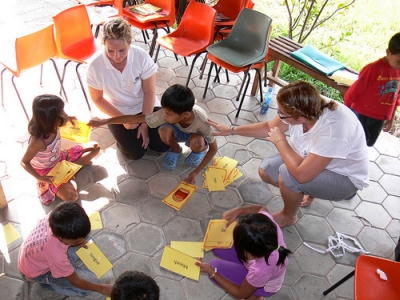
I like the idea: combining your love of travel — something most of us do for our own pleasure — with your desire to help out the world — something that benefits others. Thus has sprung the idea of “Voluntourism” (I was hoping the term “toureering” would catch on, but no luck), where you can spend your Aruba vacation picking up litter on beaches, or volunteering at an orphanage while you backpack through Cambodia. Recent numbers show that around 11% of travelers planned to volunteer during their next trip.
But with fame comes attention, and with attention comes criticism. What is volunteerism anyway? How much good does it really do? Would you be better off just making a donation? This week Slate ponders these questions and more:
Critics point out that voluntourists often come for short stints, like you are planning to, and leave without accomplishing much. It’s also sometimes unclear whether the voluntourism projects that agencies choose are actually rooted in community needs or whether they just make for the best spring break trip. Mostly, critics are skeptical of the voluntourism model itself. There is no question that unless you have very specific skills to offer, an organization could do more good with the amount of money you will spend on travel, accommodations, and tourism than you could do during your weeklong visit.
They suggest taking a step back and asking yourself, am I doing this just to say I’m doing this, or do I have something to offer and I think I can make a change? “[T]hink long and hard about why you are choosing this trip instead of a week in Disney World and about both what you hope to get out of the trip and what you hope to offer. With research, you are more apt to find a project that benefits you and those you are trying to help.”
Click through for some suggestions on reputable voluntourism guides, including Lonely Planet’s Volunteer Guide and Volunteer Vacations.
The post Does “Voluntourism” Do Any Good? appeared first on The Expeditioner Travel Site.
]]>The post The World Of Philanthropic Travel: Volunteering Abroad appeared first on The Expeditioner Travel Site.
]]>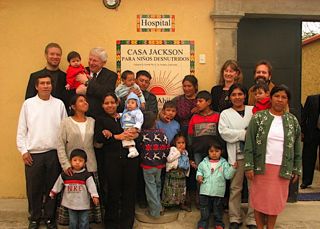
All destinations have a dual nature. In Guatemala there is the Guatemala that is shown to tourists, and then there is the other Guatemala. In the Northern jungle region of the country, tourists marvel at Tikal, a breathtaking parked filled with ruins of Mayan pyramids. Not far from Tikal, in garbage dumps across the country, are the descendants of the Mayan kings who built these pyramids, young boys and girls working 12 hours a day to salvage recyclables that will pay for a meal, that will allow them to survive for another day, that will do nothing to break them out of the cycle of generational poverty.
Travelers spending enough time in third-world countries learn willingly (or reluctantly) is that for much of the world, life is tough. For many it is a struggle just to get through another day. In the West we have figured out food. It’s like breathing. We have never gone a day voluntarily without eating, and just as the air will always be there for our next breath, food will always be there for our next meal. When we ask what we will eat tomorrow, we’re thinking: Pizza Hut? Perkins? The Olive Garden? etc. . . For much of the third-world, it is the same question, but many struggle to answer it. What will I eat tomorrow? Will I eat tomorrow?
Tourists and travelers are often ill-equipped to deal with the difficult lives extending a pleading hand before them. We feel guilty. We want to help them. Sociologists from their ivory towers tell us that by giving beggars money we will be causing them more harm than good. It is the economical systems that need overhaul. By giving to beggars you will just be creating deep dependencies. Alms are just band-aids that will not address the deeply driven social woes that lead to poverty. Such thinking is good jabber in college classrooms, but when you find yourself face-to-face with pleading eyes, imploring for your help, it is never as cut and dried.
People avoid thinking about the world’s woes when they feel powerless to do anything about them. My boss, friend and mentor Patrick Atkinson, the founder of the Guatemalan development organization Nuestros Ahijados, has spent decades spreading the message that, “Most people want to help, most people can help in some way, but they just don’t know how.” For the next generation of travelers, traveling has become as much about what there is to see as it is about what can be done to help the natives of the countries they are visiting.

Over the past two years working with Nuestros Ahijados, I often see the best of humanity along side the worst human conditions. Every day I see forlorn, impoverished faces and the faces of tourists and travelers trying to reconcile the fact that they live better than 99% of the world. I see malnourished infants a few mouthfuls away from death. But then, I also see volunteers, spending eight hours a day working to nurse these children back to health.
In November of 2008, our organization opened a malnourished infant center. Because of a tight budget, we were banking on recruiting volunteers to carry the brunt of the workload. The result has been overwhelming. Families vacationing for two weeks, spring breakers here for a week, longtime travelers, study abroad students, and expats just passing through on their way north or south, have all showed up with admirable dedication.
They come to Guatemala for different reasons, but all end up helping us save lives. Philanthropic travel is the new black. In every developing country there are NGOs (non-government organizations) who need volunteers. Becoming involved in such organizations allows travel to be more than just seeing, but also doing. If you are going to be passing through a certain place, it’s easy to Google what organizations are there needing volunteers. Many travelers simply show up somewhere and ask around for organizations that need volunteers. Usually the people behind the front desk at hostels, or the teachers of language schools have a good idea of what organizations are out there.
 From my experience in the NGO world, it is best to be weary of organizations that charge their volunteers a fee. Paying to volunteer is a bit of an oxymoron. Often these organizations simply appease tourists in an effort to give them the impression they are making a difference rather than focusing on how to make lasting impacts in the fight against generational poverty.
From my experience in the NGO world, it is best to be weary of organizations that charge their volunteers a fee. Paying to volunteer is a bit of an oxymoron. Often these organizations simply appease tourists in an effort to give them the impression they are making a difference rather than focusing on how to make lasting impacts in the fight against generational poverty.
At our Casa Jackson Malnourished Infant Center in Guatemala, there is a moment in the course of saving a child that can cause grown men to tear up. It’s a single smile. Children enter our center so close to death that they no longer react to human touch. Their expressions are blank, and it seems that whoever used to live inside that body is no longer there. For some it takes days, others weeks, but on the road to recovery, there is a single moment when these children regain themselves, and for the first time in months, they smile. They smile and begin to laugh, and for those volunteers who have worked with them for hours a day to bring them to this point, the view is better than any panoramic landscape.
Instead of being disheartened by the ubiquitous inequality of the world while traveling, be encouraged that you can become part of the solution. There are many organizations that need volunteers, and whose only prerequisite is a dedicated heart. We all change the world, it’s only ever a question whether it was for better or worse and to what degree. Be it time, talent, and treasure, there is something you can do right now. And now here’s my shameless plug: If you are passing through Guatemala and would like to help, or if you can’t think of how to spend your Christmas money, visit www.godschild.org and we have some ideas for you.

About the Author
 Luke Maguire Armstrong lives in Guatemala directing the humanitarian aid organization, Nuestros Ahijados. His book of poetry, iPoems for the Dolphins to Click Home About (available for sale on Amazon.com) is especially enjoyed by people who “don’t read poetry.” (@lukespartacus)
Luke Maguire Armstrong lives in Guatemala directing the humanitarian aid organization, Nuestros Ahijados. His book of poetry, iPoems for the Dolphins to Click Home About (available for sale on Amazon.com) is especially enjoyed by people who “don’t read poetry.” (@lukespartacus)
The post The World Of Philanthropic Travel: Volunteering Abroad appeared first on The Expeditioner Travel Site.
]]>The post Ever Wonder What Volunteering In Cambodia Is Like? appeared first on The Expeditioner Travel Site.
]]>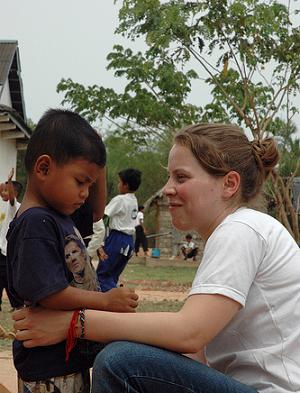
Volunteering abroad is full of highs and lows. Choosing to do that in Cambodia, one of the least developed countries in the world, has it’s own set of issues. Seeing the body pits from the genocide by the Khmer Rouge regime, to the ever cheerful village children, Lauren Dickerson (not her pictured above) sits down for an interview to explain her experiences over at inTravel Magazine.
“From riding my bike to work and being chased in the street by smiling children screaming “HELLO!!!” to seeing those same children play in a sewage canal around the corner from my house, my experience in Cambodia was a total emotional roller coaster. Every day I would think that I’d seen it all, and the next day something else would happen that would make me say the same thing.”
My favorite; “Lauren, what made you decide to pick up and leave Paris?”
“I was working as a legal assistant and wanted a breath of fresh air from high society and the corporate world.”
The post Ever Wonder What Volunteering In Cambodia Is Like? appeared first on The Expeditioner Travel Site.
]]>The post Global Recession? Time To Volunteer Abroad appeared first on The Expeditioner Travel Site.
]]>
I can see no better way to deal with the financial crisis than to completely ignore the whole thing and use it as an excuse to go ahead and do what you’ve had in the back of your mind for years: volunteer abroad. Please note, this last statement was intended for most everyone, except for those working in the Obama administration, in which case I strongly urge you to ignore me (as hard as that may seem, I’m sure) and keep doing what you’re doing and help get the world out of this mess.
Anyway, Alix over at Bootsnall lists five reasons why right now is the perfect time to volunteer abroad, including the fact that your minuscule bank account will likely go much further in most parts of the world than your own; you’re not working now anyway, so why not do something to boost your resume; and finally, why not do your part and help out those who have been experiencing their own global recession their entire lives?
The post Global Recession? Time To Volunteer Abroad appeared first on The Expeditioner Travel Site.
]]>